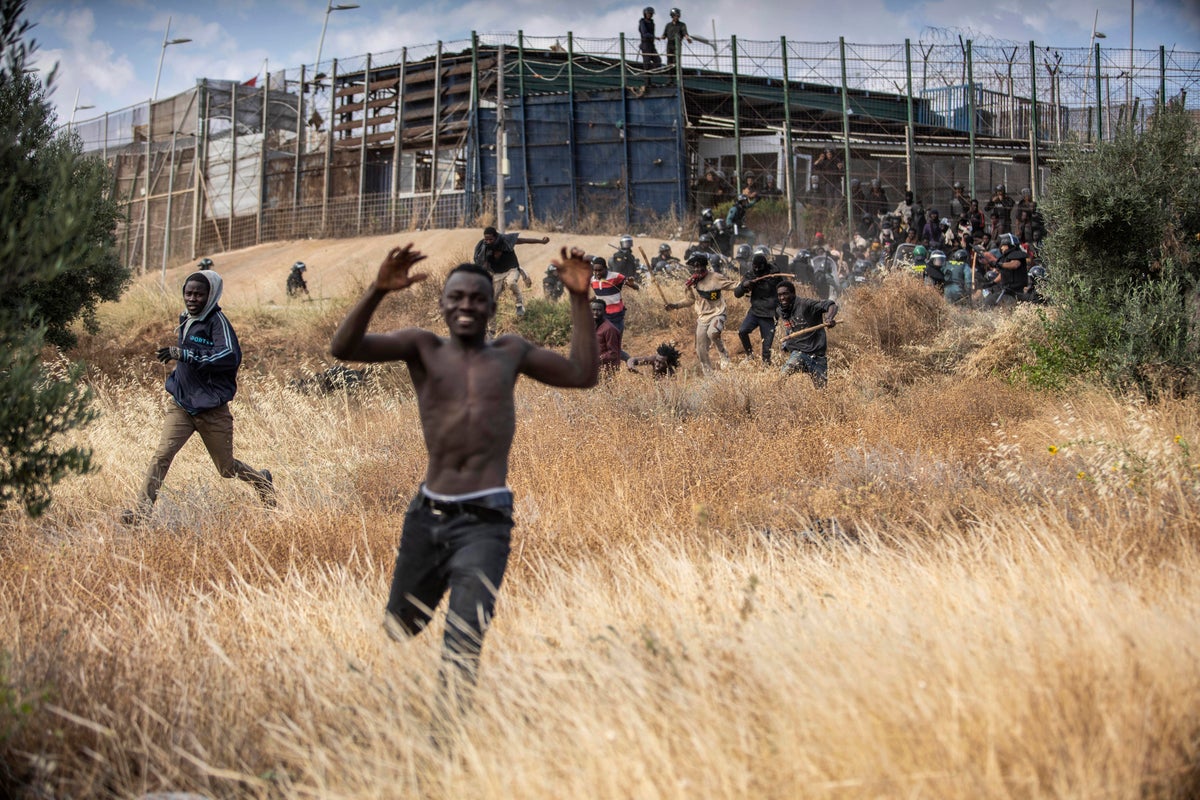
Rights groups on Friday denounced a lack of justice and transparency over the deaths of 37 migrants on June 24, 2022, during a mass attempt to cross the border from Morocco into the Spanish enclave city of Melilla.
Ahead of the tragedy's anniversary, Amnesty International said the Spanish and Moroccan authorities were “preventing attempts to find the truth" of what happened when up to 2,000 African migrants tried to climb a border wall and dozens were crushed, beaten and denied medical attention by security forces at the “Barrio Chino” border crossing.
Spain’s interior minister has repeatedly rejected that any deaths occurred on Spanish soil.
The independent Spanish Commission for Refugees, also known by its Spanish acronym CEAR, ordered authorities to clarify what happened that day for “truth, justice and reparations," and demanded the launch of an independent investigation after prosecutors shelved the only state probe into the deaths in December.
“This leaves the door wide open for such a tragedy to happen again, endangering the lives of thousands of people seeking refuge," said Estrella Galán, CEAR’s general director.
Amnesty noted that the families of 76 people who remain missing after the tragedy were still waiting for answers, and that Spain and Morocco both had failed to provide a full list of victims' names, or any footage of the tragedy.
"Bodies are still lying in a morgue and in graves and efforts to identify the dead and inform their relatives have been blocked,” said Amnesty International Secretary General Agnès Callamard.
Amnesty further alleged that Spain has continued illegal forced expulsions at the Moroccan border since the deadly attempted border crossing, while the warming of relations between the two countries means Morocco forcibly prevents asylum seekers from reaching the Spanish side to apply for international protection.
“What happened in Melilla is a salutary reminder that racist migration policies aimed at fortifying borders and restricting safe and legal routes for people seeking safety in Europe have real and deadly consequences," Callamard said.
Organizations like CEAR have long criticized the Spanish government for the physical and bureaucratic obstacles asylum seekers face while seeking safe harbor. Spain's acceptance rate for asylum seekers' claims is well below the European average.
The rights groups' call for action comes during a harrowing month for migrant deaths in the Mediterranean.
The bodies of a man and a child were retrieved from waters off the western coast of Morocco, Spain’s Maritime Rescue service said Wednesday. Spanish NGO Caminando Fronteras said the dinghy they were traveling in was left for 12 hours without help, and 39 people on board died.
Recordings obtained by private Spanish radio outlet Cadena Ser revealed Friday that the Spanish coast guard asked Moroccan authorities to aid the shipwreck, allegedly delaying the arrival of aid while doubts were raised over whether the migrants were in Spanish or Moroccan waters.
Meanwhile, the number of confirmed deaths from one of the worst-ever migrant shipwrecks in the Mediterranean rose to 81 Monday after three more bodies were found off southern Greece. The Greek coast guard has also been widely criticized for not trying to rescue the migrants before their vessel sank.
The Spanish and Moroccan authorities did not immediately reply to a request for comment.







